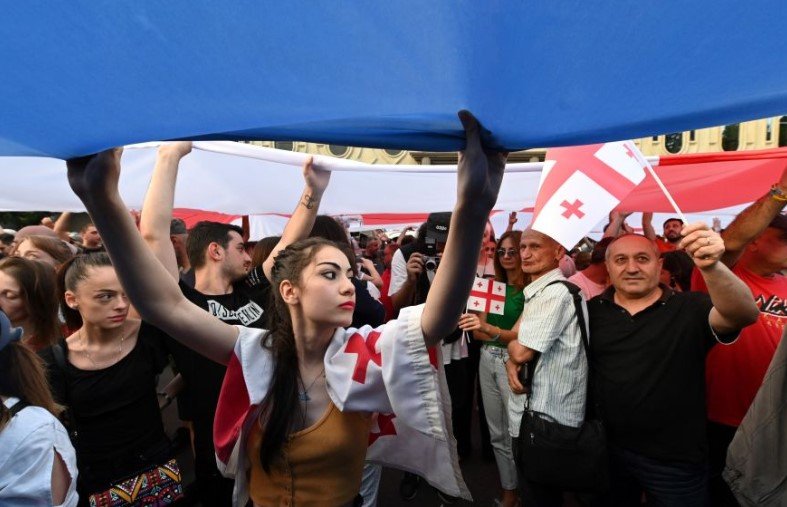In a recent statement, the European Union has reaffirmed its unwavering support for Georgia’s independence, sovereignty, and territorial integrity. This declaration comes amidst ongoing tensions and conflicts in the region, particularly concerning the Russian occupation of the Tskhinvali and Abkhazia regions. The EU’s commitment to peaceful conflict resolution and its active role in the Geneva International Discussions highlight its dedication to supporting Georgia in these challenging times. The EU Monitoring Mission (EUMM) continues to play a crucial role in maintaining stability and monitoring the situation on the ground.
EU’s Commitment to Georgia’s Sovereignty
The European Union has consistently supported Georgia’s sovereignty and territorial integrity. In its latest statement, the EU condemned the ongoing Russian occupation and military interventions in the Tskhinvali and Abkhazia regions. These actions violate international laws and the 2008 six-point agreement, causing significant hardships for local communities. The EU’s firm stance against these violations underscores its commitment to upholding international law and supporting Georgia’s sovereignty.
The EU’s involvement in the Geneva International Discussions (GID) as a co-chair demonstrates its proactive approach to conflict resolution. The GID aims to address the consequences of the 2008 conflict and find peaceful solutions. The EU’s engagement in these discussions is crucial for achieving long-term stability in the region. Additionally, the EU Special Representative for the South Caucasus and the crisis in Georgia plays a vital role in facilitating dialogue and promoting peace.

The continued presence of the EU Monitoring Mission (EUMM) in Georgia is another testament to the EU’s commitment. The EUMM monitors the situation on the ground, providing valuable insights and ensuring compliance with international agreements. This mission is essential for maintaining stability and preventing further escalations.
Addressing the Impact of Russian Occupation
The Russian occupation of the Tskhinvali and Abkhazia regions has had severe consequences for the local population. The EU’s statement highlights the ongoing challenges faced by these communities, including violations of border policies and illegal detentions. These actions have disrupted the lives of many individuals, causing significant social and economic hardships.
The EU’s condemnation of these violations is a crucial step in addressing the impact of the occupation. By calling for the full implementation of the 2008 six-point agreement, the EU aims to hold Russia accountable for its actions. This agreement, mediated by the EU, outlines the steps necessary for resolving the conflict and restoring peace. The EU’s insistence on its implementation underscores its commitment to a peaceful resolution.
Furthermore, the EU’s support extends beyond diplomatic efforts. Humanitarian aid and development projects are crucial components of the EU’s assistance to Georgia. These initiatives aim to alleviate the suffering of affected communities and promote economic recovery. The EU’s comprehensive approach ensures that support is provided at multiple levels, addressing both immediate needs and long-term development goals.
Future Prospects for EU-Georgia Relations
The EU’s reaffirmation of support for Georgia comes at a critical time. As Georgia continues to navigate the challenges posed by the Russian occupation, the EU’s backing provides a source of stability and hope. The EU’s commitment to peaceful conflict resolution and its active involvement in the region are essential for Georgia’s future prospects.
Looking ahead, the EU’s support is expected to play a pivotal role in Georgia’s path towards European integration. The EU’s engagement in the Geneva International Discussions and its monitoring efforts through the EUMM are crucial for maintaining stability and promoting peace. Additionally, the EU’s development projects and humanitarian aid contribute to Georgia’s economic recovery and social well-being.
The EU’s unwavering support for Georgia’s sovereignty and territorial integrity sends a strong message to the international community. It reaffirms the importance of upholding international law and resolving conflicts through peaceful means. As Georgia continues to face challenges, the EU’s backing provides a foundation for building a stable and prosperous future.
